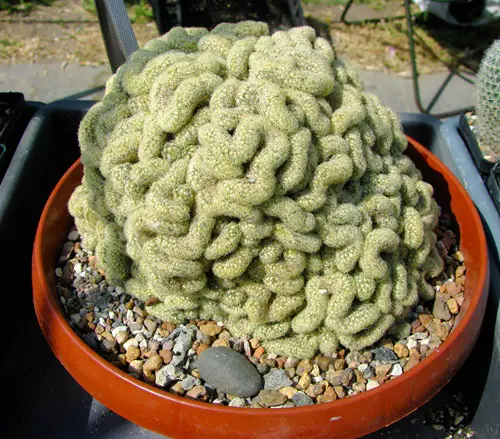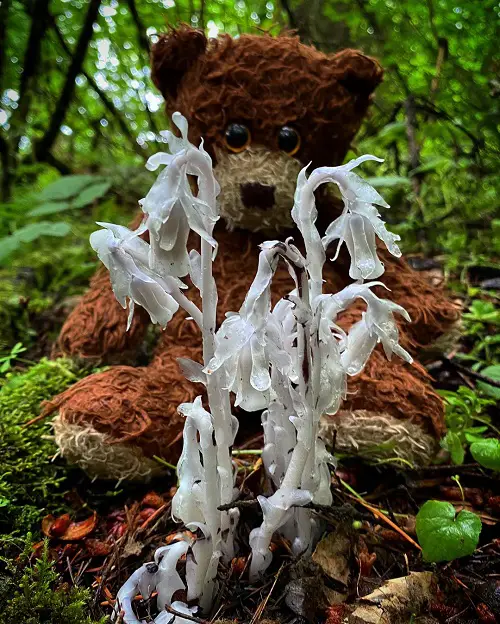These Spooky Plants for Halloween can do wonders for your home and make it extra scary for All Hallows’ Eve! Don’t miss out!
Everything around has to match the eerie vibes of Halloween, or else how would it be a thrill? So, how can you make sure your garden and houseplants match the spooky vibe? With these exotic plants, of course!
Spooky Plants for Halloween
1. White Ghost Cactus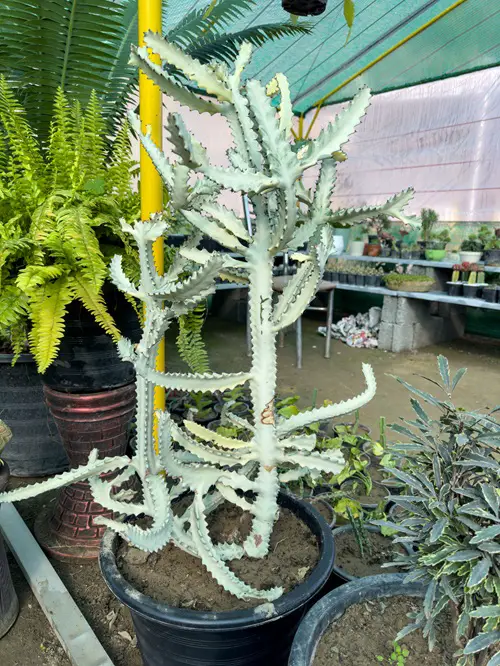
Botanical Name: Euphorbia lactea
This is the perfect plant for Halloween because of its spooky structure. White ghost cactus has spiny stems and lacks chlorophyll-bearing tissues, which gives it white variegation that adds to the look. Plus, the arms are covered in spikes!
You can quickly propagate it for Halloween through stem cutting and make your surroundings more grave.
If you don’t have the time left, why not buy a mature one? The only thing this plant doesn’t like is overwatering, which can quickly kill it. So water it only when the soil is completely dry.
2. Red Pitcher Plant
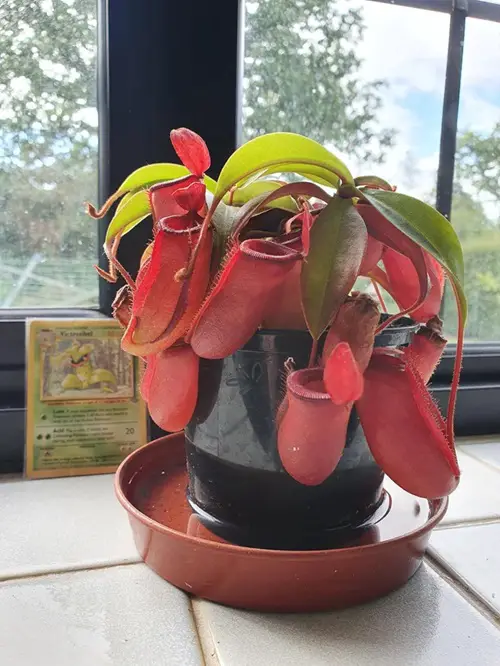
Botanical Name: Arracenia flava x alata
This is a hybrid pitcher plant, a cross between S. alata var. nigrapurpurea and flava var. subcorpora. It has bright hues and an upside-down umbrella-like shape that gives it an eerie look.
This one is a part of our list due to its strange shape and its carnivorous nature–it is known for luring and trapping insects. You can grow this perfect Halloween plant either indoors or outdoors.
3. Carrion Flower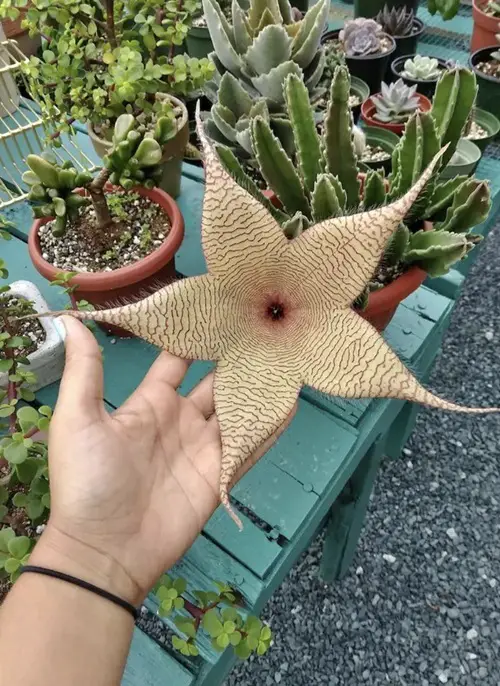
Botanical Name: Stapelia
When we hear the name flower, we think of beautiful looks and pleasant smells. However, the carrion flower is nothing like that because of its bizarre looks and not-so-pleasant odor. Carrion flowers have four-sided grooved stems, a starfish-like shape, and a hairy texture.
These are the perfect flowers to pose with on Halloween for Instagram due to their photogenic and weird looks. They are also the best flowers for your home’s bright spots and don’t mind the intense direct sun.
4. Brain Cactus
Botanical Name: Mammillaria Elongata Cristata
We bet your neighborhood will be crawling with people in zombie costumes, so why not give them brains to eat? Not real ones, of course!
The brain cactus, as the name suggests, looks like the human brain with its strange growth pattern and frilly spikes all over it.
5. Bat Flower
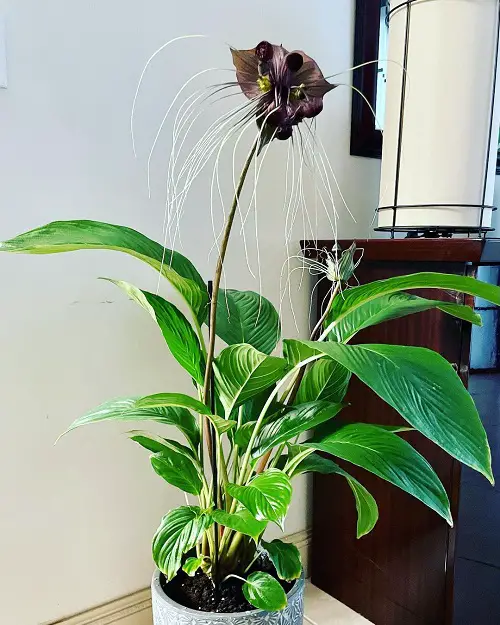
Botanical Name: Tacca chantrieri
Also popular as a cat’s whiskers, this one has an eerie exotic appearance with its bat-like shape and pitch-black ears and whiskers. The bat-like flower can grow a foot long and is great for the porch in a warm climate crowded with other tropical plants.
Growing this plant needs close attention compared to other plants on the list. It will thrive only when you ensure high humidity and moist soil, so you’ll need these tricks.
6. Cockscomb
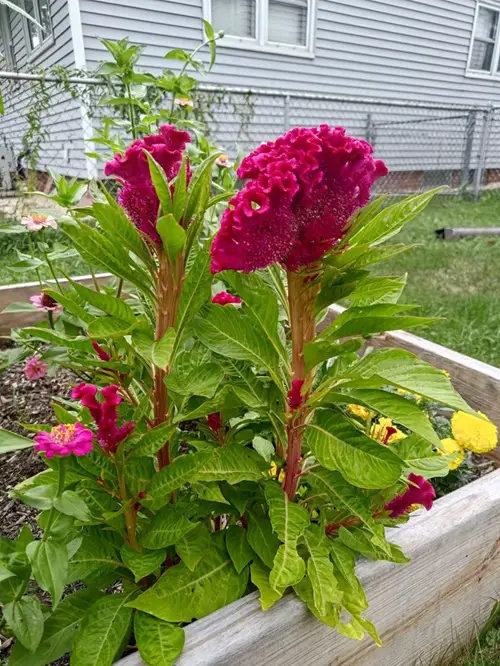
Botanical Name: Celosia cristata
The fuzzy, brain-like appearance of cockscomb makes it the perfect Halloween plant. Its red hues and strange appearance make it ideal for your Halloween garden, and also kind of mysterious. It is a very low-maintenance plant; even beginners can grow it with ease.
Give it warm ambiance, full sun, and well-draining soil, and you will see it thrive in your garden.
7. Angel’s Trumpet
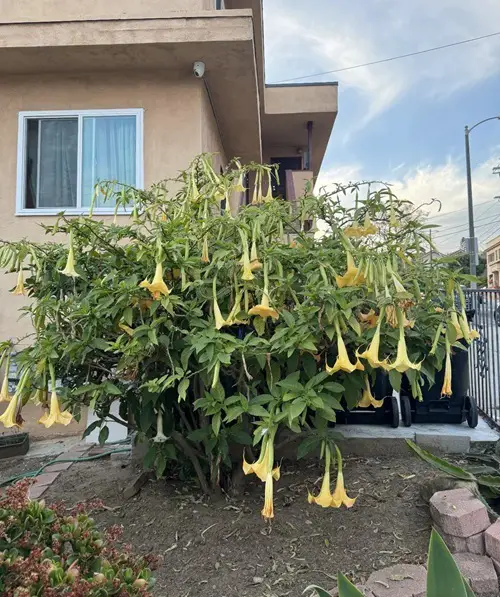
Botanical Name: Brugmansia
The big trumpet-shaped flower can surely sweeten the Halloween look of your garden. If you feel the look is not terrifying enough, you should hear another frightening fact about the plant.
Angel trumpet is nothing like an angel because many South American tribes have used its hallucinogenic properties for sorcery and black magic.
This plant loves to bask in the sun, and it is best planted in spring for beautiful blooms.
8. Devil’s Claw
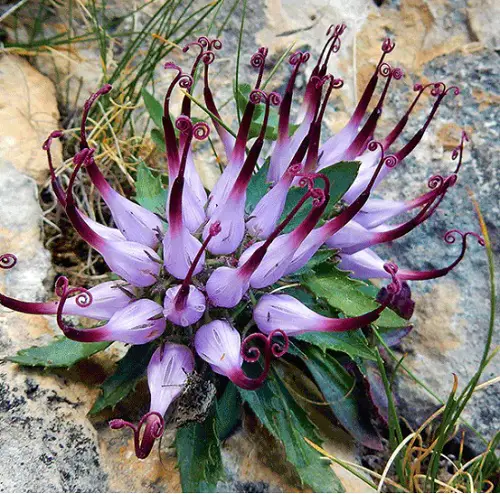
Botanical Name: Proboscidea parviflora
The devil’s claw has made it to the list because its seedpods that look like spiders or sharp hooks.
These hooks, which give the plant a Halloween feel, are useful for spreading its seeds by sticking on animals when they brush against it.
You can grow devil’s claw from seeds in late spring when the soil is relatively warmer. Plant it in the sunniest spot to keep it happy and provide loamy, well-draining soil.
9. Old Man Cactus
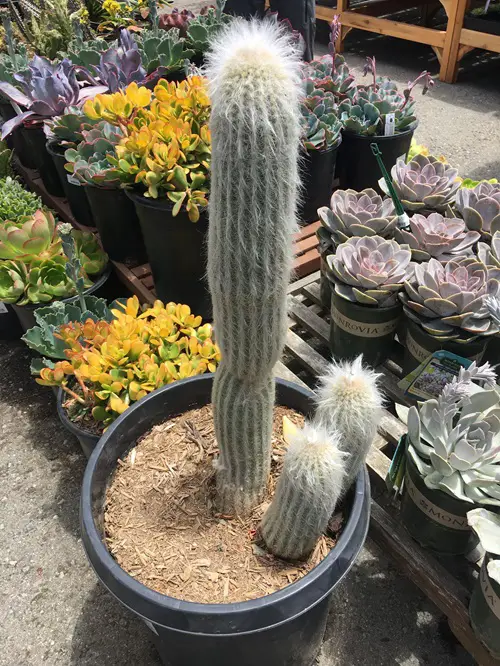
Botanical Name: Cephalocereus senilis
The old man’s cactus’s ghost-like appearance gives it a unique exotic look, perfect for your Halloween house theme.
This plant has fluffy white tufts of hair all over its surface. You can compare it with the ghost costumes one makes by wrapping the white sheet all over the body during Halloween games.
10. Venus Flytrap
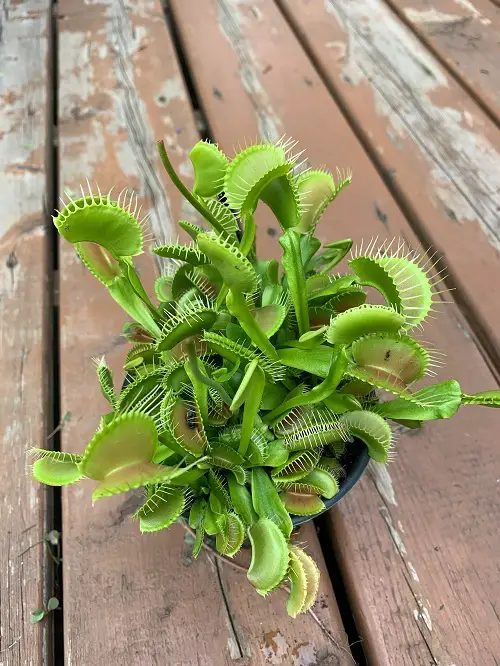
Botanical name: Dionaea muscipula
Arguably one of the most insectivorous plants, the Venus flytrap is spooky in appearance and action. This perennial plant, with white flowers and green veins, looks like a scary trap, catching insects flying around.
Venus flytraps prefer moist and acidic soil for better growth. If you plan to grow them indoors, keep them near a window with a mix of direct and indirect sunlight. Here are tips to grow a giant one of these.
11. Desert Candle Cactus
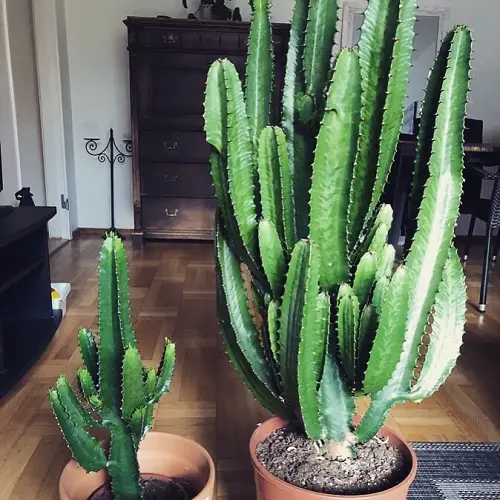
Botanical name: Euphorbia acrurensis
Desert candle cactus has slender, lush green stems that grow like candlesticks, and the thorny bumps on its multiple branches give it an exciting look. The plant can grow up to 5-8 feet tall and be the center of attention at your Halloween parties.
Ocassionally, it also displays some floral beauty, as the plant has small purple flowers without distinct petals. Being a Euphorbia, it doesn’t need special care so it’s great for beginners. Why don’t you pair it up with these cactus with arms?
12. Ghost Plant
Botanical name: Monotropa uniflora
The ghost plant, or ghost pipe, has a pipe-like structure with a white color that makes it eerie-looking. It is native to Asia and America and has a ghostly appearance because of its reduced leaves.
Since this plant lacks chlorophyll, it is parasitic and feeds on other trees as hosts, which gives it a more creepy vibe. You can grow it in pots, but it’s very difficult to grow!
13. Cape Sundew
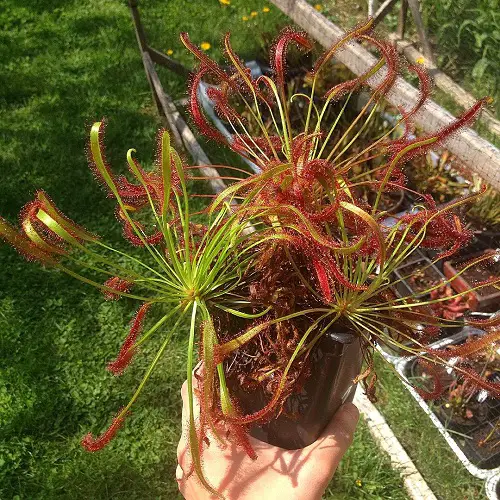
Botanical name: Drosera capensis
Another perfect Halloween plant is Cape Sundew. It has long, narrow leaves with red-tipped glands surrounding them. These glands give the plant an alien and mysterious look, which makes it stand out.
Cape Sundew traps gnats, flies, and other insects with its mucin. It does well with full sun and can be grown even in nutrient-poor soil.
14. Mangave ‘Desert Dragon’

Botanical name: Manfreda X Agave
This is a cross between the Manfreda and Agave genera, and the result is a spooky plant with bizarre features like leaves with small prickles and curvy edges.
It is the perfect plant for a Halloween-themed tabletop decoration. You can grow it easily in any well-drained soil, but ensure you choose a spot that receives full sun.
15. Begonia Ferox
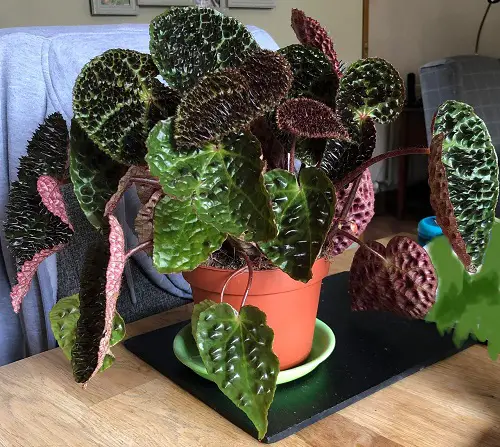
Botanical name: Begonia ferox
The round bumps on the leaves of begonia ferox almost resemble teeth; hence, you find it in the list of Halloween plants.
But that’s not all; the best part about it is the dark and gritty shades of violet, green, and a dull pink of its leaves that make it look bizarre.


